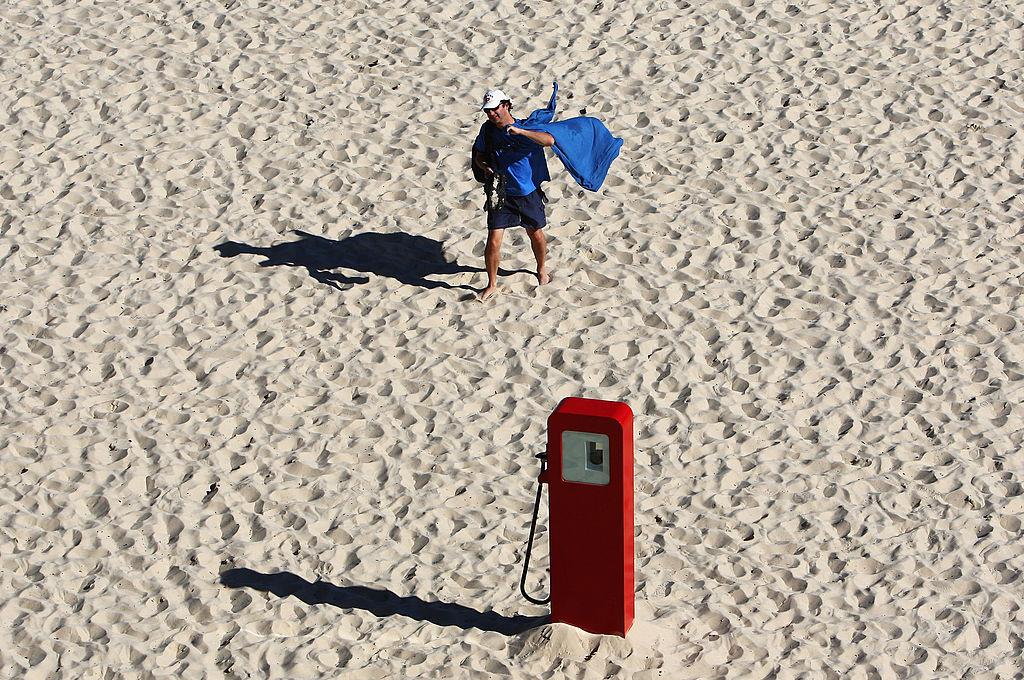Australia needs more than an accounting trick to secure its fuel reserve
Posted By Justin Burke on April 3, 2020 @ 11:00

If one positive comes from coronavirus-inspired panic buying, let’s hope it’s that Australians begin to reconsider the wisdom of our reliance on overseas supply chains and just-in-time inventory for critical resources and supplies. And if that does indeed happen, the conversation will quickly turn to oil.
Nothing would see shelves empty faster—or for longer—than a disruption to Australia’s seaborne supplies of oil. Indeed, virtually all transportation in this country relies on it.
The figures have told an ugly story for many years. As a member of the International Energy Agency, Australia is obliged to hold emergency oil stocks equivalent to at least 90 days of net imports; we currently hold 52. Compounding this, our domestic crude oil production has fallen over the past 20 years and just four oil refineries remain open across the country. The sum of Australia’s domestically produced oil would meet just 25% of current demand, according to the government’s interim report [1] on liquid fuel security.
Despite living in the home of the actual black swan, Australians seem congenitally unable to take low-probability, high-impact events—such as fuel-supply disruptions, massive bushfires or global pandemics—seriously until they are actually upon us.
The federal government has largely left energy security to be determined by the self-interest of industry bodies and has been happily convinced by the arguments of economic liberals who—conveniently leaving aside the oil crises of the 1970s—claim that we haven’t had any supply problems, so we won’t have any in the future.
More recently, analysts have tried to simultaneously square the exigencies of energy security with those of climate change, generally advocating solutions such as electric vehicles, which don’t address the risks in today’s hydrocarbon economy as much as urge its replacement.
But the maritime security environment has changed. Australia’s key trading lanes cross an increasingly contested Indo-Pacific—sea lanes we must defend with a petrochemically powered navy. China has given sustained and serious attention to the risks associated with its seaborne oil imports, particularly the chokepoint at the Strait of Malacca. It is easy to imagine China wishing to turn its ‘Malacca dilemma’ into a dilemma for everyone else.
The Australian government recently took some action: Energy Minister Angus Taylor signed an agreement to purchase oil and store it in the US Strategic Petroleum Reserve. But the plan has a number of weaknesses, to say the least.
Australia is a long way from the US. The crude oil held underground in the SPR across Texas and Louisiana would have to be shipped through the Panama Canal and across the Pacific to Australia, more than twice the distance from some of the Asian mega-refineries which currently supply us.
Even if the crude got here in a time of crisis, it would still need to be refined, a capability we have steadily abandoned.
In an instance in which our sea lanes from Asia were compromised, it’s optimistic to think Australia’s Pacific approaches would remain safe. The Imperial Japanese Navy’s attempts to secure bases across the South Pacific during World War II were aimed at cutting Australia off from US replenishment.
As ASPI’s Peter Jennings pointed out [2] in the Weekend Australian, if in an emergency the US decides it needs the oil more than we do, the agreement might not stand.
At best, the plan will allow Australia to count the purchased oil in America’s SPR towards the 90-day domestic reserve requirement mandated by the IEA—essentially an accounting trick.
With the ink barely dry on this mediocre solution, fate has offered Australia a do-over. In the face of the Covid-19 crisis and a probable global recession, it’s cheaper than ever for governments to borrow money. Meanwhile, a price war between Saudi Arabia and Russia has seen the price of light sweet crude oil [3] plummet from above US$60 a barrel to just above US$20. Doing the right thing may never be so cheap again.
Our agreement with the US indicates we at least have begun to comprehend the value of having our own strategic petroleum reserve. But the Australian government should take this realisation, combine it with the superlative opportunity of a 60% drop in the price of oil and immediately inaugurate our own strategic reserves.
Article printed from The Strategist: https://aspistrategist.ru
URL to article: /australia-needs-more-than-an-accounting-trick-to-secure-its-fuel-reserve/
URLs in this post:
[1] interim report: https://www.environment.gov.au/system/files/consultations/7cf6f8e2-fef0-479e-b2dd-3c1d87efb637/files/liquid-fuel-security-review-interim-report.pdf
[2] pointed out: https://www.theaustralian.com.au/inquirer/coronavirus-time-for-urgent-reassessment-of-vulnerability/news-story/34e57abe9358a4aaf0908837ff909025
[3] price of light sweet crude oil: https://www.bloomberg.com/quote/CL1:COM
Click here to print.